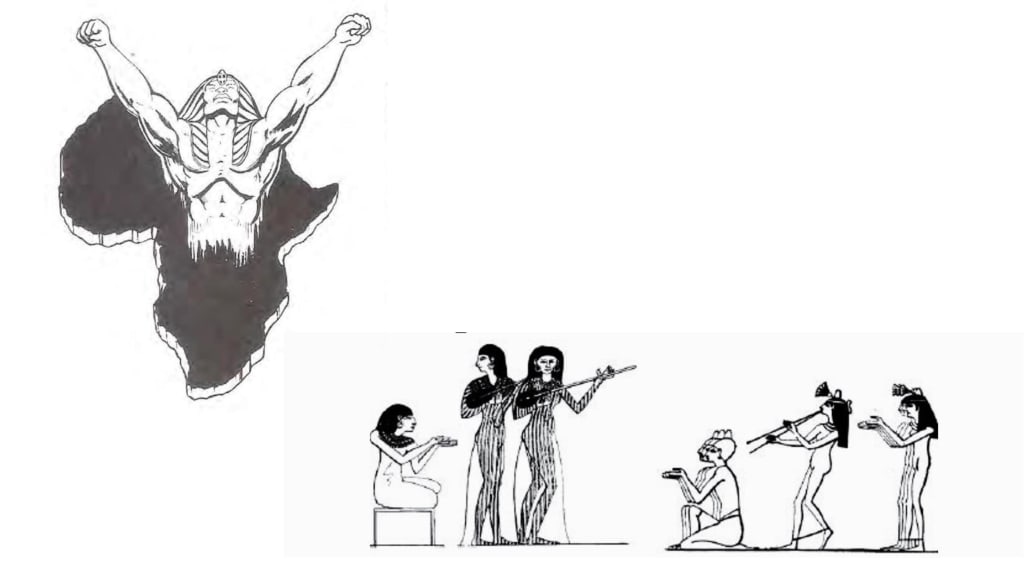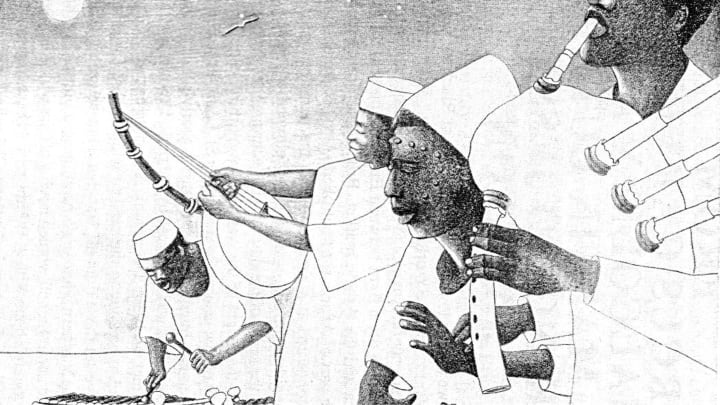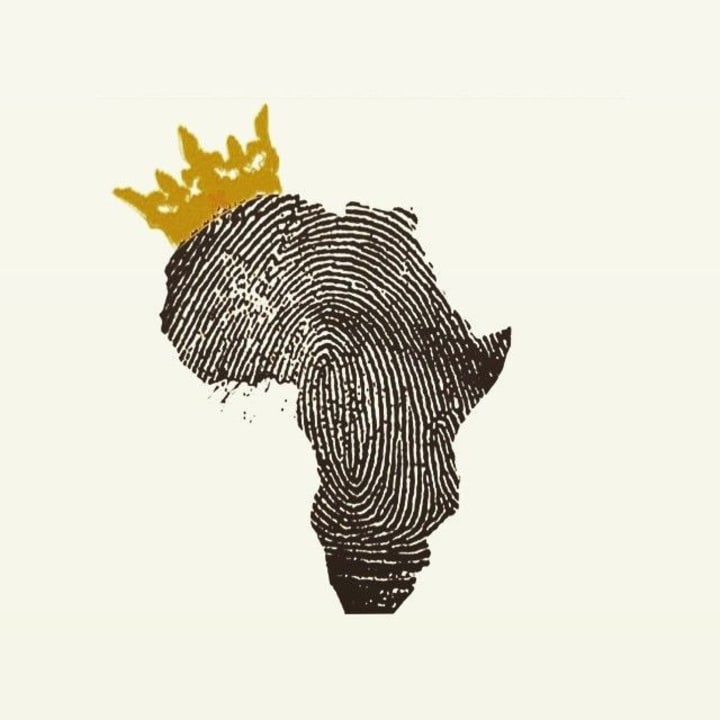Music as a Healing Force in Ancient and Medieval Africa
The ancient Kemites (ancient Egyptians) knew that certain forms of music are conducive to peace, relaxation, and harmony. This kind of music is suitable for promoting the healing and health maintenance process.

The ancient Kemite Sages instituted tight controls on theatre and music because they understood indulgence in inappropriate entertainments was known to cause mental agitation and undesirable behaviors. Famous ancient Greek Philosopher and student of the Ancient Kemetian Mysteries, Pythagoras wrote that the ancient Kemites place particular attention to the study of music.
Plato, another famous ancient Greek Philosopher, and student of the Ancient Kemetian Mysteries stated that the Kemites thought it was:
"Beneficial to the youths."
Plato also reported that:
“In the education of the youths they were particularly strict…they knew that children ought to be early accustomed to such gestures, looks and motions as are decent and proper; and not to be suffered either to hear or learn any verses and songs than those which are calculated to inspire them with virtue; and they consequently took care that every dance and ode176 introduced at their feasts or sacrifices should be subjected to certain regulations.”
Strabo confirms that:
“Music was taught to youths along with reading and writing, however, it was understood that music meant for entertainment alone was harmful to the mind, making it agitated and difficult to control oneself, and thus was strictly controlled by the state and the priests and priestesses.”
Like the sages of ancient India, who instituted Nada Yoga, or the spiritual path of music, the ancient Kemites held that music was of Divine origin and as such was a sacred endeavor. Music was so important in ancient Kemet that professional musicians were contracted and kept on salaries at temples. Music was given special consideration in ancient Kemet because the Kemites recognized this artform had the special power to carry the mind to either elevated (spiritual) states or (worldly) states. When a person overindulges in music for entertainment and escapism (a desire to escape from daily routines or reality by indulging in fantasy, daydreaming, or entertainment), the mind is filled with worldly impressions, cravings, lust, and uncontrolled urges. In this state of mind, the capacity for right thinking and feeling are distorted.
During the modern era, the vibrations of the music and the feelings contained in it through the lyrics of the performer evokes the production of certain biochemical processes in the mind and body. This capacity of music is evident in movies, music, concerts, audio recordings, etc., in their capacity to change a person’s mood. All messages affect the mind, which is why great care should be taken to fill the mind with the right kinds of messages in the form of ideas and feelings.
The ancient Kemites rated music highly, and Plato considered the music of the ancient Africans (Kemites, Egyptians) was superior to the Greeks, both for melody and energy. For the ancient Kemites, harmony and rhythm were always subordinate to the words, which means the lyrics were more important than the actual music itself. The subject matter for the ancient Kemites was paramount.

There are two sorts of harmonies known to the ancient Kemites, which the Greeks designated as “Dorian” and “Phrygian.”
The Dorian Mode is slow, meditative, and devotional and it was used for processions, rituals, and religious ceremonies. The second mode, Phrygian, is lively, exciting, and devotional. All music was dedicated to the Divine (God) and not to frivolous entertainments in ancient Kemet. In fact, singing and hymns was seen as an effective means to communicate with and propitiate the Divine. The ancient Kemite word for music means “to sing.” So, singing to the divine was understood as the highest and only purpose of music. Central to the music is the religion and the language. The Kemetic language was called Medu Neter or Divine Speech or Speech is Divine. This means that the Kemetic language was Divinely inspired and when its words are used, they have special powers.

The continent of Africa or its spiritual name, “Alkebu-lan,” which means “land of the Spirit People” was regarded as the chief source of the spiritual “Land of the Gods” or “Land of the Spirits.” Ancient Kemet (Egypt) became world famous and was known as the “Bread Basket of the World,” because this Black civilization was so advanced during ancient times.
“Negro people’s in particular to make a specific effort to revive and develop to the full these creative and spiritual powers which…are Nature’s pre-eminent gifts to the African.” – Dr. William Leo Hansberry
“Magic” in ancient and medieval Africa was simply another religious means of invoking the aid of a deity (demi-god) to secure benefits for the people and leading them to peace and prosperity. This leader, the king, queen, or chief of a nation was indeed the “Lieutenant of God on Earth.” ”Magic” was another form of prayer, song, or dance in the appeals of supernatural powers for help in Africa.
There were many musical instruments that were used in ancient Kemet, for example, a few included:
- The Voice
- The hands (clapping)
- The Tar
- Hand drum
- All the three stringed long lute, known as Nefer
All music, dancing and festivities should be dedicated to the Divine, just like in ancient Kemet. On this teaching, the ancient Kemite Sages believed, depended on the prosperity of the nation. During the modern era, the use of music and the performing arts has led to the degradation of society in the form of arts which was designed to engender passion and agitation in people’s minds to simulate sales, fortune, and fame for those who produce it. This is done for the most part without regard to the ill effects of music on the mind.
Based on the chants of Kemetic Religion and mysticism, and on traditional musical forms, they were designed to engender serenity, harmony, and spiritual upliftment.
Sources:
Ashby, M. Kemetic Diet: Ancient African Wisdom for Health of Mind, Body and Spirit: Based on the Natural Diet and Health System of Ancient Kamit and Nubia. Sema Institute. (May 29, 2011). Oct. 18, 2022. p. 432-436.
Battle, R., Robinson, C., Robinson, E. The Journey of the Songhai People. Pan African Federation Organization; 2nd edition. (June 1, 1992). Oct. 18, 2022. p. 15, 230, 326.
Browder, A. Nile Valley Contributions to Civilization: Exploding the Myths Vol. 1. The Institute of Karmic Guidance; First Edition. (Dec. 1. 1992). Oct. 18, 2022. p. 26.
Brown, C. Black Love Art. Pinterest. Oct. 19, 2022. https://www.pinterest.com/pin/767934173944912970/sent/?invite_code=c9be33711e3d4c72864bfef3774c53f3&sender=690739799006539387&sfo=1
Williams, C. The Destruction of Black Civilization: Great Issues of a Race from 4500 B.C. to 2000 A.D. Third World Press; 3rd Revised ed. edition. (Feb. 1, 1992). Oct. 18, 2022. p. 36, 52, 251-252.
About the Creator
Darryl C. Richie
Inspirational Speaker, Author and Blogger looking to inspire with my story of being a two-time cancer survivor and hip amputee, and connect the African Diaspora to their African roots via Black Consciousness.






Comments
There are no comments for this story
Be the first to respond and start the conversation.